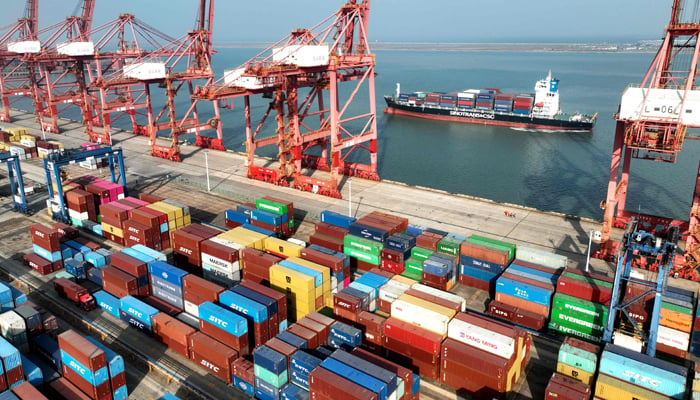Uncertainty vs risk
But how can they do so in Pakistan? The only recourse left for them is to guard their resources and wait for a good time
LAHORE: The business landscape is becoming more unpredictable than ever due to increasing competition, political unrest, and social change. To stand a chance of survival and achieve sustainable profits, it's important for companies to prepare for uncertainty.
But how can they do so in Pakistan? The only recourse left for them is to guard their resources and wait for a good time. The good days, however, are not on the horizon. Uncertainty should be distinguished from risk, which is the possibility of something going wrong. Unlike uncertainty, the outcome of risks can be measured. A good example of risk is rolling dice. You may not know which number the die will land on, but there is a chance that it will be any number from 1 to 6.
Navigating through uncertainty is a difficult task for businesses, particularly when the economy of the country is at stake. We saw that even the largest corporations of the country that were going strong caved in when Pakistan faced a forex crisis during the PDM government. To cope with the situation, the state squeezed imports of even essential raw materials. This handicapped the manufacturers, some of whom needed small components equivalent to one percent of the product value, but because of one missing component, the entire manufacturing process came to a halt.
There were many such cases in electronics, bikes, and vehicles. Some machines that needed imported components came to a halt. In this type of uncertainty, the businesses were helpless. Still, some businesses saw what was coming and filled their inventories with larger quantities of raw materials and frequently needed components. But such businesses were few and minted money when the competitors remained idle.
But this time around, Pakistan is facing a different kind of uncertainty. Businesses do not know what will happen the next day. There is no government in waiting after the election. It could be a combination of various parties or two of the three main parties. The economy is in worse condition than it was ever before. Every businessman knows that whoever assumes power, the decisions would be extremely tough if Pakistan wanted to survive as a sovereign nation.
The domestic business tycoons have resources but they are at a loss where to invest. There is no clarity on power tariff or gas rates, which are two important inputs of most industries. The exporters, at the current cost of doing business, cannot compete globally, so they withhold investments. Those catering to domestic needs are worried that the way prices are increasing, there might come a day when smuggled items would throw them out of the market. After years of pleading, the businessmen are convinced that unethical trade practices would continue to plague the Pakistani market as none of the three major parties during their respective tenures ever tried to eliminate these practices.
The businessmen have an idea that this time around, the economic landing would be extremely rough. They are prepared to pay higher taxes if they are able to generate some profit. They are also convinced that no government in Pakistan would muster the courage to bring tax evaders into the tax net. Rulers usually avoid annoying service providers that control 52 percent of national wealth. The doctors, engineers, architects, lawyers, stock players and property tycoons, if properly taxed, could wipe out the fiscal deficit faced by the country.
-
 Laura Dern Reflects On Being Rejected Due To Something She Can't Help
Laura Dern Reflects On Being Rejected Due To Something She Can't Help -
 HBO Axed Naomi Watts's 'Game Of Thrones' Sequel For This Reason
HBO Axed Naomi Watts's 'Game Of Thrones' Sequel For This Reason -
 King Charles' Sandringham Estate Gets 'public Safety Message' After Andrew Move
King Charles' Sandringham Estate Gets 'public Safety Message' After Andrew Move -
 Brooklyn Beckham Plunges Victoria, David Beckham Into Marital Woes: ‘They’re Exhausted As It Seeps Into Marriage
Brooklyn Beckham Plunges Victoria, David Beckham Into Marital Woes: ‘They’re Exhausted As It Seeps Into Marriage -
 Lewis Capaldi Sends Taylor Swift Sweet Message After 'Opalite' Video Role
Lewis Capaldi Sends Taylor Swift Sweet Message After 'Opalite' Video Role -
 Sarah Ferguson Joins Andrew In ‘forcing’ Their Daughters Hand: ‘She Can Lose Everything’
Sarah Ferguson Joins Andrew In ‘forcing’ Their Daughters Hand: ‘She Can Lose Everything’ -
 'Bridgerton' Author Reveals If Actors Will Be Recast In Future Seasons
'Bridgerton' Author Reveals If Actors Will Be Recast In Future Seasons -
 50 Cent Super Bowl Ad Goes Viral
50 Cent Super Bowl Ad Goes Viral -
 'The Housemaid' Lifts Company's Profits: Here's How
'The Housemaid' Lifts Company's Profits: Here's How -
 Michael Douglas Recalls Director's Harsh Words Over 'Wall Street' Performance
Michael Douglas Recalls Director's Harsh Words Over 'Wall Street' Performance -
 Henry Czerny On Steve Martin Created Humor On 'Pink Panther' Set
Henry Czerny On Steve Martin Created Humor On 'Pink Panther' Set -
 Lady Victoria Hervey: Andrew Mountbatten-Windsor's Ex-girlfriend Proud Of Being On Epstein Files
Lady Victoria Hervey: Andrew Mountbatten-Windsor's Ex-girlfriend Proud Of Being On Epstein Files -
 Huawei Could Revive Chip Technology If US Lets Guard Down, Intel CEO Says
Huawei Could Revive Chip Technology If US Lets Guard Down, Intel CEO Says -
 Dolly Parton Created One Of Her Iconic Tracks With Acrylic Nails?
Dolly Parton Created One Of Her Iconic Tracks With Acrylic Nails? -
 Parents Alarmed As Teens Form Emotional Bonds With AI Companion Chatbots
Parents Alarmed As Teens Form Emotional Bonds With AI Companion Chatbots -
 Denzel Washington Surprises LeBron James
Denzel Washington Surprises LeBron James




